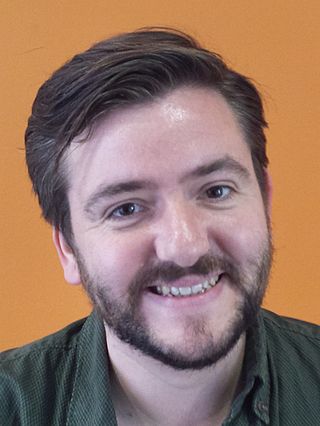Related Research Articles
In secular usage, religious education is the teaching of a particular religion and its varied aspects: its beliefs, doctrines, rituals, customs, rites, and personal roles. In Western and secular culture, religious education implies a type of education which is largely separate from academia, and which (generally) regards religious belief as a fundamental tenet and operating modality, as well as a prerequisite for attendance.

The National Secular Society (NSS) is a British campaigning organisation that promotes secularism and the separation of church and state. It holds that no one should gain advantage or disadvantage because of their religion or lack of it. It was founded by Charles Bradlaugh in 1866.

Education in England is overseen by the Department for Education. Local government authorities are responsible for implementing policy for public education and state-funded schools at a local level. State-funded schools may be selective grammar schools or non-selective comprehensive schools. All state schools are subject to assessment and inspection by the government department Ofsted. England also has private schools and home education; legally, parents may choose to educate their children by any suitable means.
A parochial school is a private primary or secondary school affiliated with a religious organization, and whose curriculum includes general religious education in addition to secular subjects, such as science, mathematics and language arts. The word parochial comes from the same root as "parish", and parochial schools were originally the educational wing of the local parish church. Christian parochial schools are called "church schools" or "Christian schools."

Humanists UK, known from 1967 until May 2017 as the British Humanist Association (BHA), is a charitable organisation which promotes secular humanism and aims to represent "people who seek to live good lives without religious or superstitious beliefs" in the United Kingdom by campaigning on issues relating to humanism, secularism, and human rights. It seeks to act as a representative body for non-religious people in the UK.
Catholic schools are parochial pre-primary, primary and secondary educational institutions administered in association with the Catholic Church. As of 2011, the Catholic Church operates the world's largest religious, non-governmental school system. In 2016, the church supported 43,800 secondary schools and 95,200 primary schools. The schools include religious education alongside secular subjects in their curriculum.
A faith school is a school in the United Kingdom that teaches a general curriculum but which has a particular religious character or formal links with a religious or faith-based organisation. The term is most commonly applied to state-funded faith schools, although many independent schools also have religious characteristics.
A person's life stance, or lifestance, is their relation with what they accept as being of ultimate importance. It involves presuppositions and commitment to exercise it in theory and practice in one's life.
A voluntary controlled school is a state-funded school in England and Wales in which a foundation or trust has some formal influence in the running of the school. Such schools have less autonomy than voluntary aided schools, in which the foundation pays part of any building costs.
The Accord Coalition for Inclusive Education is a campaign coalition of civil society groups and individuals which seeks to ensure all state funded schools in England and Wales are made open and suitable for all, regardless of staff, children or their family's religious or non-religious beliefs. Launched in 2008, the group campaigns for state funded schools to better facilitate religious mixing and the growth of mutual understanding between those of different beliefs, in the interests of equal opportunity, integration and cohesion in society.

Andrew James William Copson is a humanist leader and writer. He is the Chief Executive of Humanists UK and the President of Humanists International. He has worked for a number of civil and human rights organisations throughout his career in his capacity as executive committee member, director or trustee and has represented Humanist organisations before the House of Commons, the Organization for Security and Co-operation in Europe and the United Nations. As a prominent spokesperson for the Humanist movement in the United Kingdom he is a frequent contributor to newspaper articles, news items, television and radio programmes and regularly speaks to Humanist and secular groups throughout Britain. Copson has contributed to several books on secularism and humanism and is the author of Secularism: Politics, Religion, and Freedom.

A free school in England is a type of academy established since 2010 under the Cameron–Clegg government's free school policy initiative. From May 2015, usage of the term was formally extended to include new academies set up via a local authority competition. Like other academies, free schools are non-profit-making, state-funded schools which are free to attend but which are mostly independent of the local authority.
A voluntary aided school is a state-funded school in England and Wales in which a foundation or trust contributes to building costs and has a substantial influence in the running of the school. In most cases the foundation or trust owns the buildings.
Irreligion in the United Kingdom is more prevalent than in some parts of Europe, with about 8% indicating they were atheistic in 2018, and 52% listing their religion as "none". A third of Anglicans polled in a 2013 survey doubted the existence of God, while 15% of those with no religion believed in some higher power, and deemed themselves "spiritual" or even "religious".

St Richard Reynolds Catholic College is a coeducational Catholic school for pupils aged 4 to 18. It is located in Twickenham, in the London Borough of Richmond upon Thames, England.

English state-funded schools, commonly known as state schools, provide education to pupils between the ages of 3 and 18 without charge. Approximately 93% of English schoolchildren attend such 24,000 schools. Since 2008 about 75% have attained "academy status", which essentially gives them a higher budget per pupil from the Department for Education.
The Commission on Religion and Belief in British Public Life (CORAB) was convened in 2013 by The Woolf Institute. Its purpose was to consider the place and role of religion and belief in contemporary Britain, to consider the significance of emerging trends and identities, and to make recommendations for public life and policy. Its premise was that in a rapidly changing diverse society everyone is affected, whatever their private views on religion and belief, by how public policy and public institutions respond to social change.
The secular movement refers to a social and political trend in the United States, beginning in the early years of the 20th century, with the founding of the American Association for the Advancement of Atheism in 1925 and the American Humanist Association in 1941, in which atheists, agnostics, secular humanists, freethinkers, and other nonreligious and nontheistic Americans have grown in both numbers and visibility. There has been a sharp increase in the number of Americans who identify as religiously unaffiliated, from under 10 percent in the 1990s to 20 percent in 2013. The trend is especially pronounced among young people, with about one in three Americans younger than 30 identifying as religiously unaffiliated, a figure that has nearly tripled since the 1990s.
The 50% Rule in English faith school admissions introduced in 2010, stipulating that where newly established academies with a religious character are oversubscribed, at least 50% of their places would be open places, i.e. allocated without reference to faith. The rule is sometimes referred to as the Faith Cap on admissions. However, as the open places were just as accessible to faith applicants as non-faith applicants, in practice the rule did not explicitly prevent such schools from having more than 50% of students with a faith affiliation.
Section 70 of the School Standards and Framework Act 1998 stipulates that pupils of community, foundation or voluntary schools in England and Wales must take part in a daily act of Collective Worship, unless they have been explicitly withdrawn by their parents. The same requirement is applied to academy schools via their funding agreements, so it is true to say that all maintained schools in England and Wales are subject to the same rules. However, in practice there is widespread non-compliance with the legislation, which has not been monitored by Ofsted since 2004.
References
- ↑ "'Ban faith-based school selection' demands new campaign". BBC News. 6 June 2013. Retrieved 2 November 2013.
- ↑ Ward, Victoria Ward (6 June 2013). "Campaign aims to make faith schools open to all". The Telegraph. Retrieved 2 November 2013.
- ↑ "End selection by religion in schools". The Guardian. 16 December 2012. Retrieved 2 November 2013.
- 1 2 "Fair Admissions Campaign". British Humanist Association. Retrieved 2 November 2013.
- ↑ "Accord Coalition, Faith schools" (PDF). ComRes. Retrieved 2 November 2013.
- ↑ "Early day motion 523 - Fair Admissions Campaign". Parliament UK. Retrieved 2 November 2013.
- ↑ "Map of schools by religious and socio-economic selection". Fair Admissions. Retrieved 2 November 2013.
- ↑ "Equality Act 2010". The National Archives. Retrieved 2 November 2013.